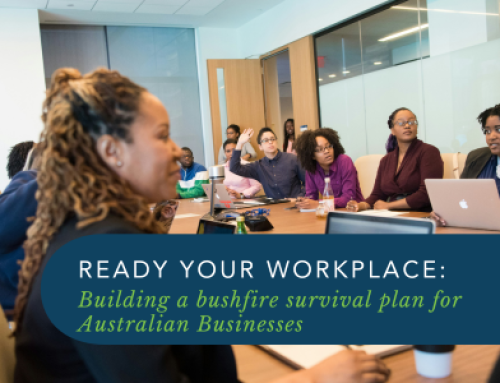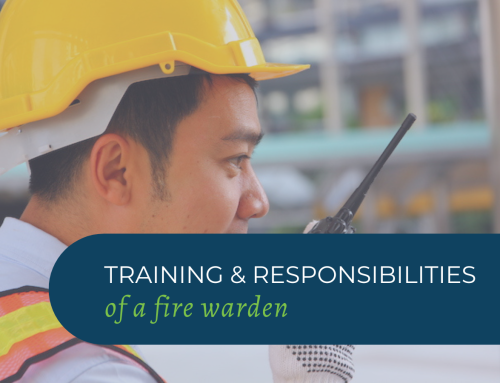There are a number of events that could happen in the workplace that result in an emergency occurring.
There could be a fire in the building, or someone could be injured by a workplace hazard.
What do people really do in these situations?
While there are procedures and management plans in place for emergencies, people’s reactions cannot be dictated by these documents.
What they do depends on whether or not they are actually prepared for any kind of emergency, and their natural reactions.
Here are the behavioural factors that contribute to a person’s reaction to an emergency.
Knowing yourself
In a crisis, some people are going to want to make decisions, and in certain situations, they may not always make the best ones.
There is a science behind the way in which people react to stressful situations, and it helps to know how you yourself react to times of stress and crisis.
Science tells us that if our heart rate soars above 175 beats per minute, we are more likely to shut down and will not be able to think clearly and rationally.
If you can control your emotions and stress levels the decision-making process will be easier, and may even save your life.
It can stop you from making a rash decision that puts yourself and others in jeopardy.
Denial
We do not want to panic unnecessarily and come across as overreacting to a situation, out of fear of embarrassment.
We might also try and find reasons we can use to deny that a bad situation is occurring so that we are better able to cope.
In an emergency situation, we often look to the people that are closest to us to find out what we should do.
This occurs whenever people are unsure of what to do, even in non-emergency situations.
We believe that the people around us will know what to do in a certain situation and that this will save us embarrassment or unnecessary stress.
If you find yourself trying to minimise or deny situations, no matter their magnitude, then this is something that you should be aware of.
Should an emergency occur in your workplace, you can then work against your instincts to deny anything is wrong, and keep yourself safer in the process.
Deliberation
Once a person has recognised that there is an emergency situation, they will need to consider their options.
The more someone is prepared, the more options they will have to work with, and the easier they will be able to adapt.
The best way to know how to determine the right decisions to make and actions to take is by participating in emergency drills.
Doing this helps a person to understand what to do or how to react when an emergency does occur, in order to remain safe.
Taking too much time deliberating can mean that you’ve inadvertently put yourself in more danger, by running out of time to evacuate.
Decisive action
Similar to deliberation in that you must consider your options, decisive actions means making a call quickly to ensure you take the safest actions during an emergency.
While you should remain calm and assess the situation, you cannot afford to take too long deliberating on the best course of action.
This is, of course, assuming that you do not have a Floor, Deputy or Chief Warden nearby, as they will instruct you on what to do.
The easiest way to ensure you can take decisive action is by being prepared.
Preparation begets confidence, which allows you to make quicker decisions and sticky by them.
Workplace Emergency Management will prepare your staff to confidently handle any emergency
During an emergency situation, no regular person is going to react ‘perfectly’.
One can only do their best – unless they are in one of the Warden roles, in which case their responsibility is much greater.
The most important thing is that you remain calm, follow any emergency procedures you have been taught, and listen to the Wardens around you.
Essentially, people react in an emergency situation when they are either:
- Affected
- Trained
- Controlled.
To help your staff react confidently and therefore stay safe in an emergency, the proper training is essential.
Workplace Emergency Management can help you empower your team to handle any emergency with certainty, with our range of comprehensive training options that are tailored to the needs of your workplace.
Give your staff the tools they need to change how they react in an emergency, so that they may keep themselves and those around them safe in a crisis.
Get in touch with us today to find out more about what we can do for your workplace.
GET IN TOUCH
Are you ready for peace of mind that your workforce is as safe and prepared as possible?
With a dedicated team of staff ready to help you meet compliance requirements and improve the overall safety of your workplace, all you need to do is get in touch.
Request your free audit today!



